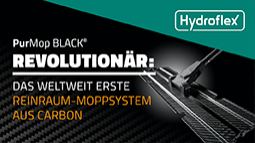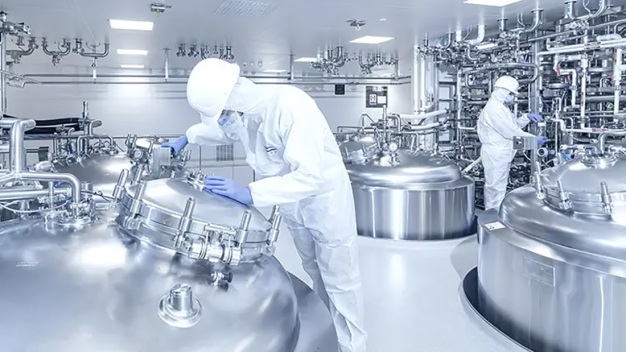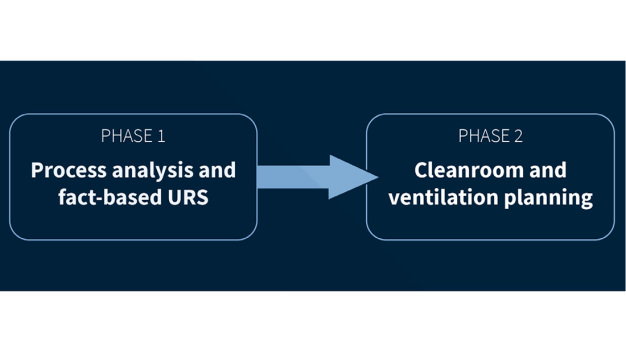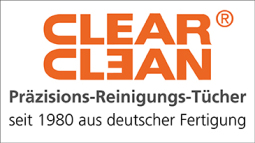- Planning
Energy-optimized cleanroom planning
The production process at the focus
ZETA is valued for its holistic view of production systems and their infrastructure. The Sustainable Energy Solutions business line is dedicated to supporting customers in achieving their decarbonization and sustainability goals. Cleanroom technology is a particularly promising starting point when it comes to energy optimization. ZETA has developed an innovative method for planning cleanrooms in a process-based and energy-optimized way, and one thing is clear: simulations play a central role in this pioneering approach.
ZETA is committed to making a positive contribution to protecting the climate and actively supports customers in achieving their decarbonization goals. With the Sustainable Energy Solutions business line, the company is proactively continuing on its path towards a sustainable future. As an end-to-end solution provider for the pharmaceutical and biotech industry, ZETA leads both greenfield and brownfield projects to success. For newly planned production facilities, cleverly chosen strategies reduce the ecological footprint right from the start and bring significant financial savings in the long term. Existing buildings and facilities also offer enormous potential for energy optimization and decarbonization.
In any case, the development of strategies to decarbonize production sites and the planning and implementation of energy optimization measures require a structured approach and a holistic view, as emphasized by Associate Director of the business line, Hans Eder.
Why is this holistic view so important? Pharmaceutical production facilities are embedded in a cleanroom environment with a diverse infrastructure. The buildings are also part of the complex system. Therefore, process technology, building technology and architecture form a whole and interact with the local environment and its conditions, for example regarding the generation of energy as well as local and district heating supplies. Each of these areas offers numerous starting points for targeted measures to improve the energy efficiency and decarbonization of a company location. Hans Eder: "In order to develop overarching, comprehensive sustainability concepts and put them into practice, a comprehensive, overarching understanding of the interrelationships is necessary." The Associate Director believes “that is the most important key to success".
Load-based engineering: made possible by production simulations
Production simulations offer enormous added value for optimization. Understanding of complex systems is much better, and different scenarios can be explored in a virtual environment. This allows for fact-based decisions to be made and reduces risks. By using the software INOSIM Insight, ZETA integrates production simulations into the engineering process. By means of simulations, the requirements of the process and possible bottlenecks can be examined in detail. The engineering can then be adapted accordingly (load-based engineering).
Energy optimization in cleanroom technology
When it comes to finding strategies for energy optimization, cleanrooms are a particularly promising starting point. After all, cleanroom technology accounts for a large proportion of the energy used in pharmaceutical plants – ZETA’s sustainability experts put the figure at 50 to 70%.
Experience has shown that in the vast majority of cases, ventilation systems for cleanrooms are oversized. This leads to unnecessarily high air exchange rates that do not match the actual requirements for contamination control. The result is excessive energy consumption, combined with increased CO2 emissions and unnecessarily high costs. ZETA proposes a far more sustainable, load-based approach, where HVAC systems are designed and controlled according to the actual requirements of the production process. This is fully in line with the contamination control strategy (CCS) applied in the GMP-compliant process according to the GMP EU Directive (Annex 1).
So how can oversizing of the ventilation system, for example, be avoided and energy requirements optimized? In response to this question, ZETA has developed an innovative methodology that is primarily aimed at the pharmaceutical production process and its real-life requirements. Simulation processes play a key role in this forward-looking approach – after process simulations with the software INOSIM Insight, fluid mechanics comes into play. But let us look at the individual steps separately:
Process-based cleanroom planning – how does it work?
The newly developed methodology for energyoptimized cleanroom planning can be divided into two successive phases. The first phase consists of a thorough analysis of the production process using INOSIM simulation software. Relevant factors such as room occupancy, heat loads and critical processes such as filter changes or sampling are included in the analysis. The simulations ultimately allow for an exact definition of the requirements that are posed on the cleanroom during the process steps. Building on the results of this analysis, a requirements profile (User Requirement Specification, URS) is developed, which is based on facts rather than the usual "rules of thumb".
Now the second phase can begin: the actual cleanroom and ventilation planning. Supported by computational fluid dynamics (CFD) simulations, the design of the ventilation system – i.e. the number and positioning of the swirl diffusers – is optimized, and the airflow is adapted to the requirements of the process.
The reduction in airflow that can be achieved results in energy savings of up to 60%, a reduction in the carbon footprint of up to 65% as well as significant savings in investment and operating costs!
ZETA GmbH
8501 Lieboch/Graz
Austria










